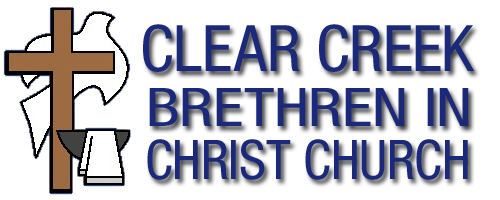Confusion and puzzle pieces
Proverbs 26:4-5 Answer not a fool according to his folly, lest thou also be like unto him.
5 Answer a fool according to his folly, lest he be wise in his own conceit.
Contradictory advice
Sometimes we are confronted with good advice from “folk proverbs” as well as Scripture, but they seem to be giving us opposite and contradictory counsel. An example of folk proverbs is: “look before you leap”. It is good advice that we should all heed. But, then you have a seemingly opposite one: “strike while the iron is hot”. Equally good advice and true, but can they both be true? When we place them in proper context they are both true and beneficial.
In the same way there are seemingly contradictory Scriptures that are equally true and equally beneficial, but they must be placed in proper context. Our text tells us opposites in two verse following one the other.
“A mean second grader” told her classmate, “I can’t hang out with you because you stink”. If she replies, “You stink too” she would be answering according to her folly; however, if she replies, “Now that I see how you are, I don’t want to hang out with you.”
Christian puzzles
In Matt 5:39-42 Jesus gives us some interesting instructions. Do we give up all our rights to follow Jesus? Is it a matter of our rights or God’s in our Christian walk? Does God require us to love others and not ourselves? Some assume they cannot be a Christian because they cannot live this way and so they do not try to live Christian and go away lost and confused.
Either-Or
A judge once told a jury, “It is either guilty or not guilty, I cannot accept, ‘too close to call’”. Some things in life are this way – you are either male or female, either Christian or non-Christian, you are either here or you are elsewhere. When two prostitutes came to Solomon with the problem of a dead and living baby, it had to be either or. The living baby was either the one woman’s or the others and he was called upon to solve the issue.
There are many either-or issues for Christians. Jesus’ blood atones for sin or it doesn’t, either we serve God or we don’t (Matt 6:24). Many prefer this either—or thinking, but the Bible does not give clear either—or teachings in many truths. For example: Was Jesus God or was He man? What causes the rain? – condensation along with jet stream and ocean moisture, or God? Is a coin head or tails? Both heads and tails make up a coin, just as Jesus was both man and God and just as both God and the laws of nature made by God cause the rain.
Both-And
Some puzzles are solved not by choosing one over the other but by blending them together to form a third idea. Jesus did this when He was questioned by the disciples of the Pharisees and the Herodians about paying taxes (Matt 22:16-21). Jesus instructed about being angry with another and the danger associated with it (Matt 5:22). Paul, however gave some instruction that appears to be contrary (Eph 4:26). Do we choose Jesus or Paul or do we blend them together for a third answer?
Jesus also addressed our life on earth and material necessities (Matt 6:25-34). Paul gave seemingly opposite instructions to the Thessalonians (2 Thes 3:10). A third answer is not to worry but to work and trust God.
Both at different times and the same time
In some cases both are true – wrong and right; but the difference being time and situation. Sex is good and proper within the confines of marriage, but wrong and sinful outside marriage. Obedience to authorities is both right and wrong (Rom 13:1; Acts 5:29). When we are called to disobey God by rulers then disobedience is right.
Seeming opposites can also be true at the same time. Rain comes from condensation and natural weather events but also at the same time rain comes from God. We are predestined but also we choose our eternal destiny. We are saved by grace without works but faith without works is dead.
We all need the Holy Spirit and God’s word to guide through these seemingly difficult ideals of either—or, both—and truths.
